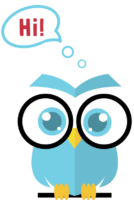Frequently Asked Questions
BookPagez is home to a large library of instructional resources for use with children’s books.
All of our instructional resources are available as PDFs and are aligned to Kindergarten - Sixth grade English Language Arts Standards (CCSS and TEKS), making us a great choice for elementary school readers.
In addition to our PDF resources, we have interactive digital activities to support comprehension strategy work with 300+ popular and award-winning picture books.
By using popular and award-winning children’s literature as a springboard for literacy instruction, we make it easy for children to practice key literacy skills while engaging with the best books.
The BookPagez resources are available through a subscription to the website.
Upon subscribing to BookPagez you can print resources, save and organize resources into your file cabinet, and begin using Digital Classroom.
All of the resources are available as PDF downloads. Plus we have interactive digital resources for comprehension strategy work and comprehension assessment.
As a subscriber you can access our entire library of printable and digital resources and supplemental content. You can download and print the instructional resources, assign digital resources when available, watch tutorials, and read the blog.
Your subscription includes resources for the following:
Comprehension Strategies
Vocabulary
Phonics & Word Work
Writing about Reading
Assessments (comprehension and oral reading fluency)
Book Clubs
Worksheets
Classroom Resources (posters, task cards, genre notebooks, etc.)
Access to Digital Classroom (digital activities and assessments, links to online read-alouds)
Note: A subscription is valid for use by one classroom and does not provide access to the books.
New Members:
We want you to be happy with your decision to join BookPagez. If you decide BookPagez is not the right fit for your classroom within the first thirty days of your subscription, we will gladly refund your purchase. Simply contact us to request a refund and we will review your account.
Due to the digital nature of the resources provided by BookPagez, our refund policy for members adheres to the following guidelines:
Refunds will not be granted to members who have engaged in systematic downloading or bulk downloading of resources
Refunds will not be granted to members who have previously received a refund
Renewing Members:
All memberships renew automatically. If you wish to cancel your subscription, you can do so in your member dashboard. Or if you would like assistance, please contact us prior to your subscription renewing.
In the event that your membership accidentally renews, please contact us within 30 days of your renewal date. If you have not downloaded any resources since your renewal date we will gladly refund your account.
Our resources don't follow a prescriptive curriculum. They are meant to be flexible so you can use them to differentiate your instruction based on your instructional goals.
You can use the resources for whole group, small group, and one-on-one instruction.
There are two ways to find the right resources for your instructional needs:
-
Use the Resource Wizard to identify the books you want to teach with. We'll provide you with a list of lessons and activities available for the books you choose.
-
Use the filters in our Resource Library to filter the resources according to comprehension skill, strategy, guided reading level, grade level, genre, CCSS, etc. We'll provide you with a list of books you can use and paired resources matched to your instructional goals.
We have resources for 300+ popular and award winning children's books!
The BookPagez resources pair with books that are widely available.
We recommend that you take an inventory of the books in your school and classroom libraries because, chance are, many of the titles are already on your shelves.
You can visit your local bookstore, used book store, and your public library.
You can also find all of the books available for purchase through Amazon, Barnes and Noble, and through other large retailers.
Many of the titles in our resource library are also available on GetEpic.com or through OpenLibrary.org.
Engaging Content: Children's books are specifically designed to capture the attention and interest of young readers. They often feature colorful illustrations, relatable characters, and engaging storylines that can captivate children's imaginations. By using children's books, teachers can create a fun and enjoyable learning experience that motivates students to develop their reading skills.
Language Development: Children's books are written in language that is appropriate for young learners. They use simple vocabulary, sentence structures, and syntax, making it easier for children to understand and comprehend the text. By exposing students to well-written children's literature, teachers can help enhance their vocabulary, language skills, and overall reading fluency.
Phonics and Phonemic Awareness: Phonics is an essential aspect of learning to read, and children's books often incorporate phonetic patterns and rhymes. They provide opportunities for students to practice phonics skills, such as recognizing letter sounds and blending them together to form words. Additionally, children's books frequently include repetitive phrases and rhymes that help develop phonemic awareness—the ability to identify and manipulate individual sounds in words.
Comprehension Skills: Children's books cover a wide range of topics and themes, presenting opportunities for teachers to introduce and teach various reading comprehension strategies. Through guided discussions and activities related to the text, teachers can help students improve their ability to understand, interpret, and analyze what they read. They can also teach important skills such as making predictions, identifying story elements, drawing conclusions, and making connections between the text and their own experiences.
Cultural and Social Relevance: Children's books often address relevant social and cultural issues in a way that is accessible and relatable to young readers. They can introduce diverse characters, cultures, and perspectives, promoting inclusivity and fostering empathy among students. By incorporating children's books with diverse themes, teachers can create inclusive and enriching learning environments that celebrate differences and promote understanding.
Overall, children's books provide a rich and valuable resource for teaching reading skills. They offer engaging content, support language development, reinforce phonics and phonemic awareness, enhance comprehension skills, and promote cultural and social awareness. By using these books, teachers can inspire a love for reading and help students develop essential literacy skills that will benefit them throughout their lives.
Yes, you can use BookPagez even if you don’t know your students' reading levels.
The importance of knowing a child’s reading level is based on your goals for instruction.
At BookPagez, we recommend you follow a gradual release of responsibility approach, also known as the “To, With, and By Framework for Learning”. That means you will spend some time teaching new skills to your students, working on developing skills with your students, and giving your students space to practice skills by themselves.
You should use a book slightly above a student's reading level when you’re teaching new concepts or working on skills with your students.
You should use a book at or slightly below a student's reading level when a student is working independently.
In the end, it’s most important for your students to discover new books, comprehend what they read, and enjoy reading. So try not to focus too heavily on a child’s reading level. Instead, enjoy the time you spend reading with your students and feel confident that the work you do with the BookPagez resources will help your students develop the skills they need to be a successful readers.
BookPagez is aligned with the science of reading, which is a body of research that has been conducted over the past 50 years across multiple disciplines to understand how children learn to read and write. This research includes studies from fields such as education, psychology, linguistics, neuroscience, speech and language pathology, and sociology. The goal of the science of reading is to use this evidence to guide effective classroom practices and literacy instruction. Here is a list of some of the books and research articles upon which our resources are based:
Books
- Bringing Words to Life; Robust Vocabulary Instruction by Isabel L. Beck, Margaret G. McKeown, and Linda Kucan
- Read Alouds for All Learners by Dr. Molly Ness
- Reading with Meaning by Debbie Miller
- Shifting the Balance by Jan Burkins and Kari Yates
- Teaching for Comprehending and Fluency; Thinking, Talking and Writing About Reading, K-8 by Irene C. Fountas and Gay Su Pinnell
- Teaching for Deep Comprehension by Linda Dorn
- Ehri, Linnea C. What Teachers Need to Know and Do to Teach Letter–Sounds, Phonemic Awareness, Word Reading, and Phonics, 28 Feb. 2022, ila.onlinelibrary.wiley.com/doi/epdf/10.1002/trtr.2095
- Duke, Nell K, et al. The Science of Reading Comprehension Instruction, 24 May. 2021, ila.onlinelibrary.wiley.com/doi/10.1002/trtr.1993
- Pearson, P. David, et al., editors. National Academy of Education, Reaping the Rewards of the Reading for Understanding Initiative, 2020, https://naeducation.org/reaping-the-rewards-of-reading-for-understanding-initiative/
- Bogaerds-Hazenberg, Suzanne T.M., and Jacqueline Evers-Vermeul. A Meta‐analysis on the Effects of Text Structure Instruction on Reading in the Upper Elementary Grades, 17 Apr. 2020, ila.onlinelibrary.wiley.com/doi/epdf/10.1002/rrq.311
- Hiebert, Elfrieda H. The Reading Teacher The Reading Teacher Feature Article Open Access The Core Vocabulary: The Foundation of Proficient Comprehension, 19 Feb. 2020, ila.onlinelibrary.wiley.com/doi/full/10.1002/trtr.1894
- Schutz, Kristine M., and Emily C. Rainey. Making Sense of Modeling in Elementary Literacy Instruction, 12 Aug. 2019, ila.onlinelibrary.wiley.com/doi/full/10.1002/trtr.1863


